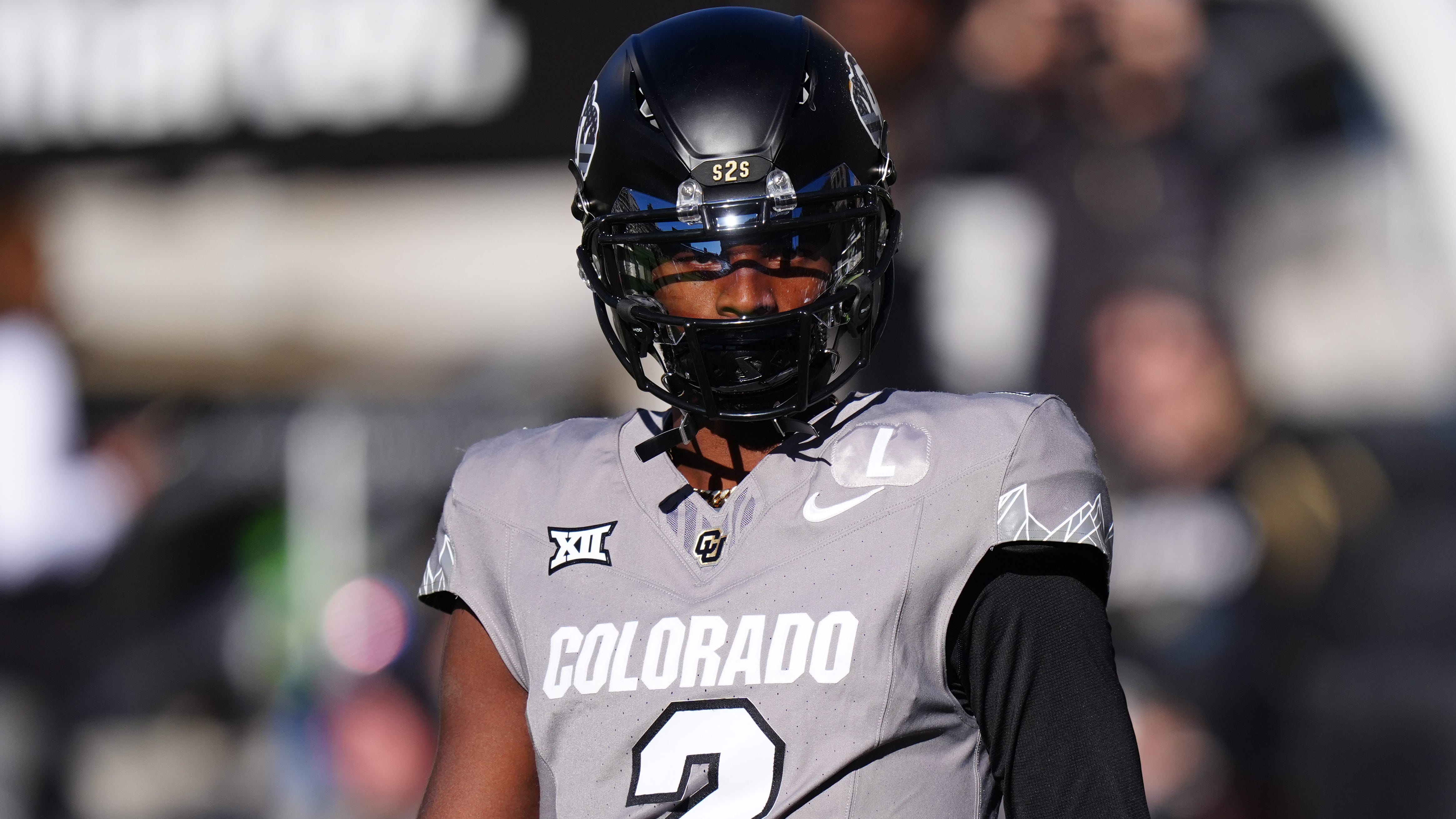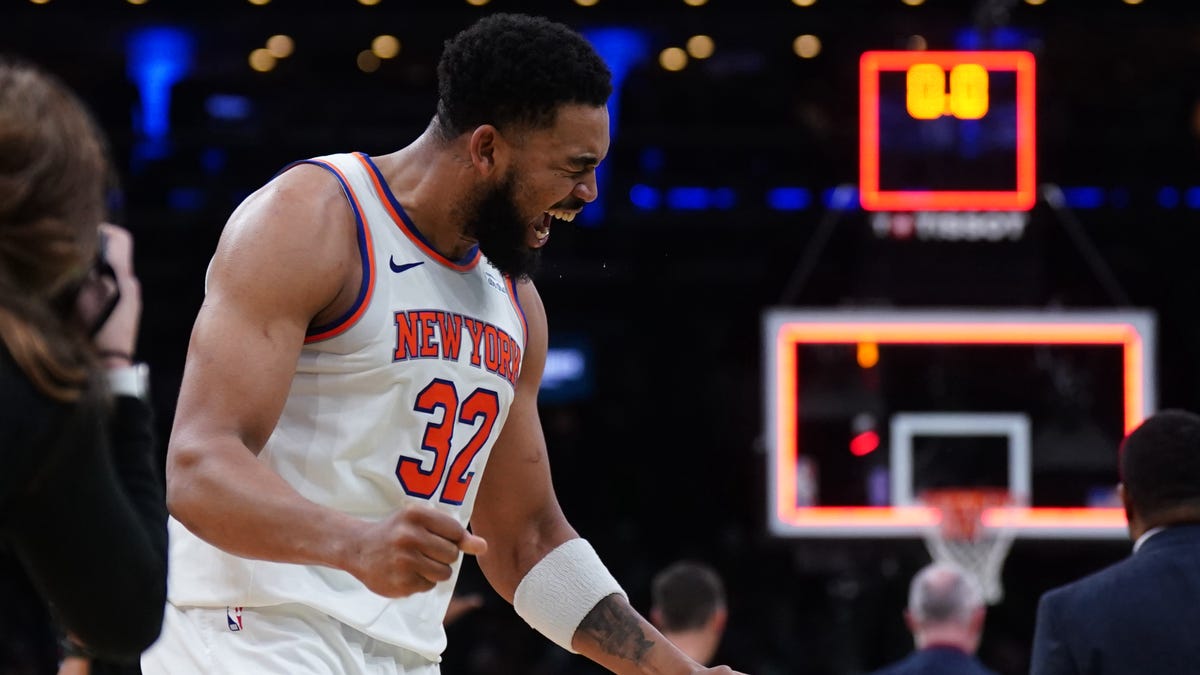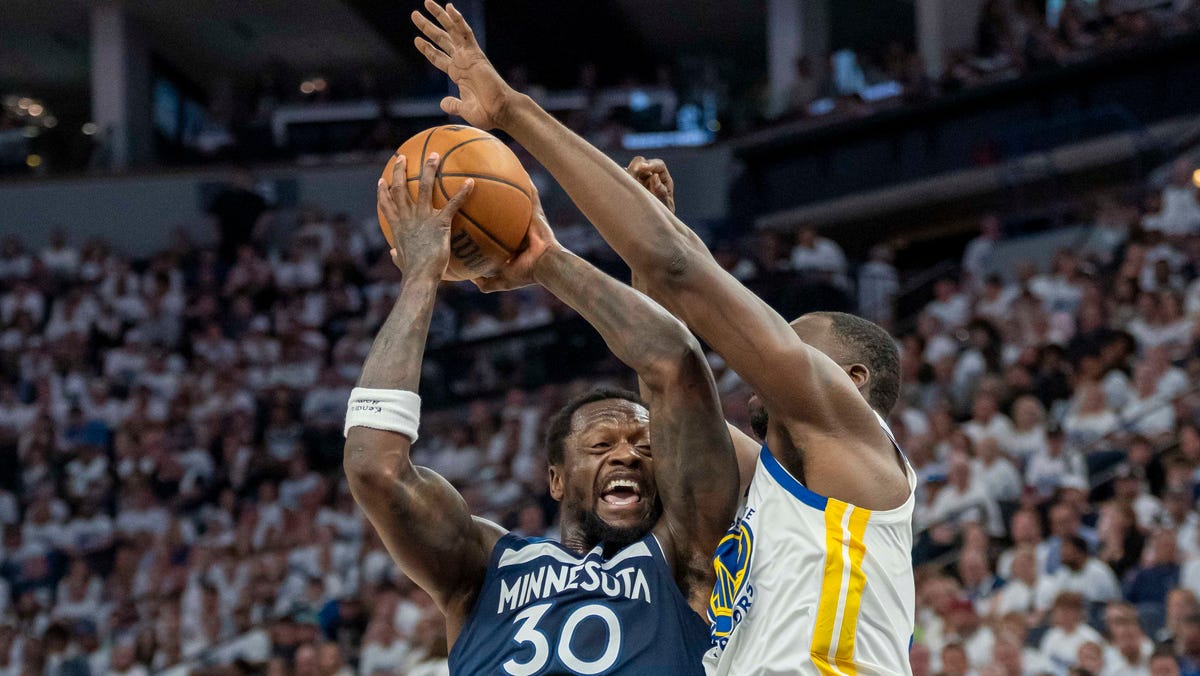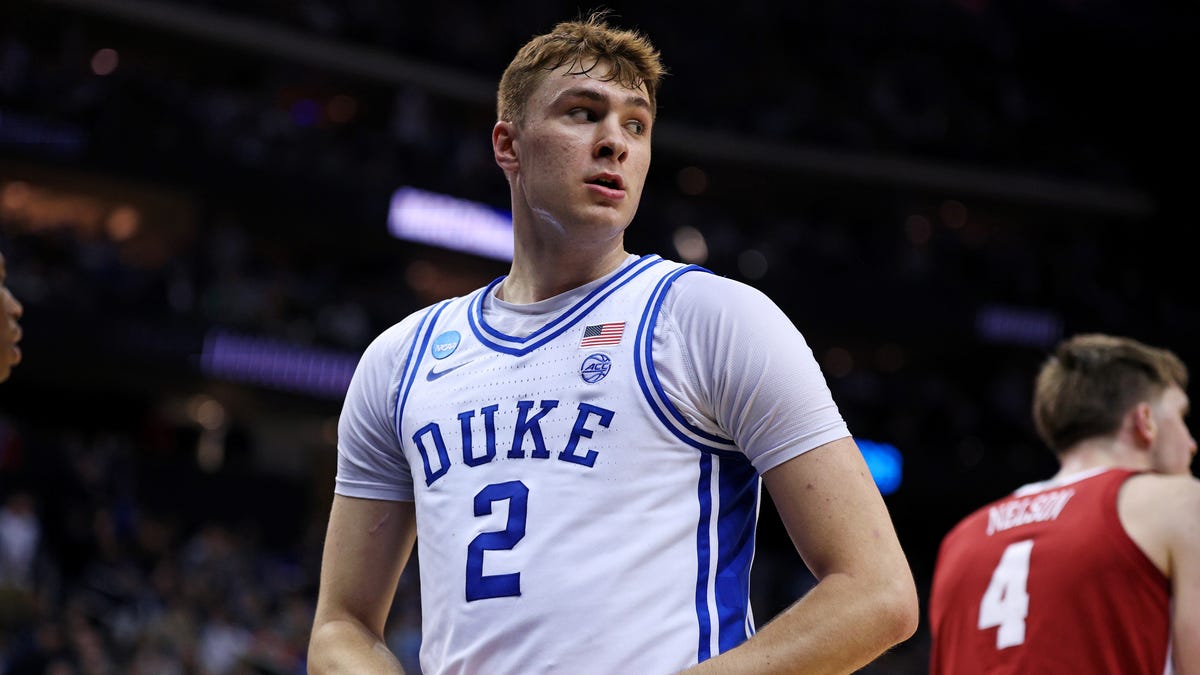
Former QB Alex Smith shares advice for Shedeur Sanders
Former NFL quarterback Alex Smith shares advice for Shedeur Sanders after his shocking fall in the draft.
Sports Seriously
Listen to some of the key voices from inside NFL draft war rooms. Let them tell us why Shedeur Sanders, projected by plugged-in analysts as a surefire first-round pick, became the man with arguably the most precipitous slide in draft history.
What the heck happened?
The former Colorado quarterback, son of Hall of Famer Deion Sanders, lasted until the 5th round, when the Cleveland Browns drafted him 144th overall.
“It’s never strictly football,” contended a high-ranking decision-maker for an NFL team.
“I think his dad’s involvement hurt him,” a high-level executive from another team maintained. “Some of the things his dad said, I think that weighed on people’s minds.”
“It was talent-based,” insisted the top personnel executive from an NFC team. “There were other factors, but you can’t chalk it all up to that.”
The three executives who shared those perspectives were among several who agreed to speak to USA TODAY Sports in the days following the draft, assessing Sanders’ tumble. All spoke on the condition of anonymity, not wanting to be identified due to the sensitivity of the issue – which undoubtedly raises questions about the subjectivity of the NFL draft process and by extension the influence of cultural bias.
“We liked Shedeur,” added the high-ranking decision-maker, whose team was clearly in the market to draft a quarterback. “But you can’t separate the other stuff from the physical abilities.”
The “other stuff” he alluded to didn’t involve any of the major off-the-field issues (such as arrests or substance abuse) that can get prospects removed from a team’s draft board. Instead, he expressed concerns about Sanders’ leadership style and a flashy persona that included flexing a customized, diamond-studded watch that he wore during games and promoting his personal clothing line, “2Legendary.”
“It’s not about being a brand,” the decision-maker added. “It’s about being a teammate and earning a job.”
We knew for months that Sanders, poised to report to the Browns rookie minicamp this weekend, represented one of the draft’s biggest storylines. He was clearly the most polarizing player in the draft, as suggested during and since the three-day event by the barrage of opinions, analysis and yes, conspiracy theories hatched, which followed intense scrutiny and controversy in the weeks leading up to the late-April draft.
Yet even with that, few, if any, in the NFL universe – including some charged to evaluate prospects for NFL teams – suspected that he would last until the third day of the draft.
“I didn’t think ‘first-round,'” the decision-maker added. “But I thought higher than fifth.”
‘We never had him as a first-round pick’
Of course, where Sanders ranked on the draft board of any given team reflects the traditional crapshoot nature of the draft and nuances that include variations in standards of evaluation for one team versus another. When it comes to the draft, consensus often is not the ticket after the blue-chip players from any given crop are accounted for.
One high-ranking executive described the marks his team puts on prospects as three separate grades. In addition to grades for pure football and a medical grade (which considers the effect of past injuries), there’s an “intensity” grade that covers intangibles. Standardized cognitive testing used by the NFL, off-the-field issues, culture fit concerns are factors weighed in the latter grade.
Sanders remained on that team’s board, but the executive said, “We never had him as a first-round pick.”
However, another high-ranking executive from an AFC team that was not in the market to draft a quarterback projected Sanders as a possible first-round pick because of the premium on quarterbacks. He said Sanders did not rank among the top 32 players on their board for overall grades but projected as a “capable starter.”
“Usually, that guy goes in the first round,” he said. “As a running back, you’d think second or third round. But it’s different for a quarterback. The quarterback position is more valuable. We expected him to go early.”
Sanders, he added, was clearly rated as the second-best quarterback prospect on their board after Cam Ward, who was drafted No. 1 overall by the Tennessee Titans. As the draft unfolded, though, Ole Miss product Jaxson Dart (Giants, 25th overall), Louisville’s Tyler Shough (Saints, 40th), Alabama’s Jalen Milroe (Seahawks, 92nd) and Oregon’s Dillon Gabriel (Browns, 94th) were all drafted before Sanders.
Interestingly, the Browns passed on Sanders in selecting Gabriel. After Day 2 of the draft, Browns general manager Andrew Berry said “fit comes into play” in explaining why the team passed on Sanders.
The next day, Berry rationalized the decision to draft Sanders in the context of value acquired by taking a quarterback at that point in the draft.
Who knows? If Sanders blossoms into the answer for a franchise that has floundered repeatedly in seeking a franchise quarterback, his bargain-basement price for draft capital and cap dollars (he will count for less than $1 million against the salary cap), it would be quite the counter to the enormous price paid ($254 million guaranteed, three first-round picks) for the bust that is Deshaun Watson, injury mishaps or not.
The AFC team’s executive who saw Sanders as a first-rounder said that his team had no formal interaction with the quarterback during the draft process, opting not to put resources in evaluating a prospect they viewed as a starter rather than backup. Although they were aware of reports from other teams – such as the story that surfaced during the combine when an assistant coach from another team declared that Sanders was “arrogant” during what he rated as the worst interview he ever encountered – there were no knocks to document from first-hand experience.
Conversely, the executive from an NFC team offered a scathing rebuke of Sanders. He said Sanders refused to interview with his team, which has an established quarterback in his prime. He said that in turning down the interview at the combine, Sanders told one of his team’s scouts: “You’ve already got a quarterback and you’re not picking in the top 5.”
An unrealistic view of value
It’s typical for teams to conduct 15-minute, formal interviews with top prospects at the combine or all-star bowl games, even if they have no plans to draft them. It’s an opportunity for teams to become familiar with players and file impressions, perhaps for future reference, such as with free agency or trade talks.
That exchange, though, also underscores something else that multiple voices from teams expressed: Sanders had an unrealistic view of his value.
In any event, in this case the executive said Sanders’ refusal to interview wasn’t a factor in his projection of the quarterback as a third or fourth-round pick. Nor was Sanders’ decision not to work out at the combine a factor, he insisted, while mentioning that in 2024, Caleb Williams didn’t work out at the combine before becoming the No. 1 pick overall.
“We grade the position the same every year,” he said.
While he praised Sanders for his accuracy and toughness, he considered his arm strength as “good, not great” and questioned his process in reading progressions. Sanders led the nation with a 74% completion rate in 2024 and in two seasons at Colorado fired 64 touchdown passes (13 interceptions). The executive said the high number of sacks Sanders absorbed (94 as a junior and senior) couldn’t be blamed solely on a suspect offensive line. Sanders, he maintained, too often held onto the football for too long while locking in on targets.
Although he had reservations about some of the non-football questions, he doubled down on the talent-based assessment by referencing a controversial Cincinnati Bengals pick from the 2017 draft.
The executive said: “Joe Mixon slapped a woman on TV and still got drafted in the second round.”
In other words, the executive underscored the notion that talent so often eclipses other factors when it comes to opportunity.
Still, the standards are typically different for a quarterback pegged to be the face of a franchise. Sanders’ supporters, considering race, will point to Baker Mayfield and Johnny Manziel, as examples in recent years of flashy white quarterbacks who became first-round picks. By the same token, one of the executives pointed to a Black quarterback, Cam Newton, like Mayfield a No. 1 pick overall, as a cautionary example.
The son-of-coach score usually carries weight
Before he was drafted in 2011, Newton raised eyebrows when he maintained that he wanted to become “an entertainer and an icon.”
More recently, Newton fueled buzz by stating that when he got to the Carolina Panthers he arrived to a “locker room of losers.”
It’s a stretch to project that mentality on Sanders. But one team decision-maker contends that the quarterback’s persona rubs him as a “look-at-me” form of selfishness – even in an age where players are more prone to social media exploits and creative on-the-field celebrations.
“The quarterback’s already getting the money and attention,” the decision-maker said. “They don’t have to make more attention. It doesn’t play well with your team.
“All the red flags are there. If it was a different position, it probably wouldn’t have the same level of importance.”
For Sanders, it’s even deeper than being a quarterback. Another layer of standard is attached to his famous father.
This seems a bit sticky. On one hand, you’d think that prospects (Shedeur’s older brother, Shilo, a safety, signed as an undrafted free agent with the Tampa Bay Buccaneers) raised by one of the greatest athletes of his era would have traits instilled in them that would aid in their pursuit of pro football careers. And throughout their lives, they’ve been exposed to resources (like Shedeur calling Tom Brady for advice) that many could only dream of. Also, the father happens to be an immensely successful college coach.
Typically, son-of-coach scores well on the NFL evaluation meter. Yet one NFL executive viewed Coach Prime’s impact on Shedeur’s draft process as a detriment.
Sure, some might fret about the possibility of the Hall of Famer publicly skewering a team if adversity strikes with his son. Deion has spoken in the past about teams he wouldn’t want Shedeur to play for and opined on why some teams repeatedly pick high in the draft.
Yet the team executive maintains that Shedeur’s draft stock suffered because of the approach to the draft process.
“I think he had some bad advice from his father,” the executive said. “He needed a traditional agent like other players. He and his dad, they felt like they didn’t need that. I think that affected him.”
That’s debatable, to some degree. Yet an agent might have urged Shedeur to employ a different strategy for dealing with teams during the draft process.
Shortly after he was drafted, Sanders, without being specific, owned up to regrets.
“I feel like in life, there’s always a way I can improve,” he told Cleveland media during a conference call. “I’m able to improve. And some things that I (did) seemed right at the time. I could’ve went about it in a different way.”
The executive whose team pegged Sanders as a first-round pick said he hopes the young quarterback will learn a valuable lesson about humility from the draft process.
“You’re not your dad,” he added. “You don’t have that type of ability.”
Another key executive also threw some shade at the Hall of Fame father.
“The way he reacted as the draft unfolded, I thought he handled himself well,” he said of Shedeur. “The best thing to happen might be to get away from his father and be on his own.”
Then again, with so many strong opinions about his ability, traits and process, too, Sanders embarks on his NFL journey with no shortage of motivational fuel to prove that some particular NFL power players were so wrong.
Follow Jarrett Bell on social media: @JarrettBell










